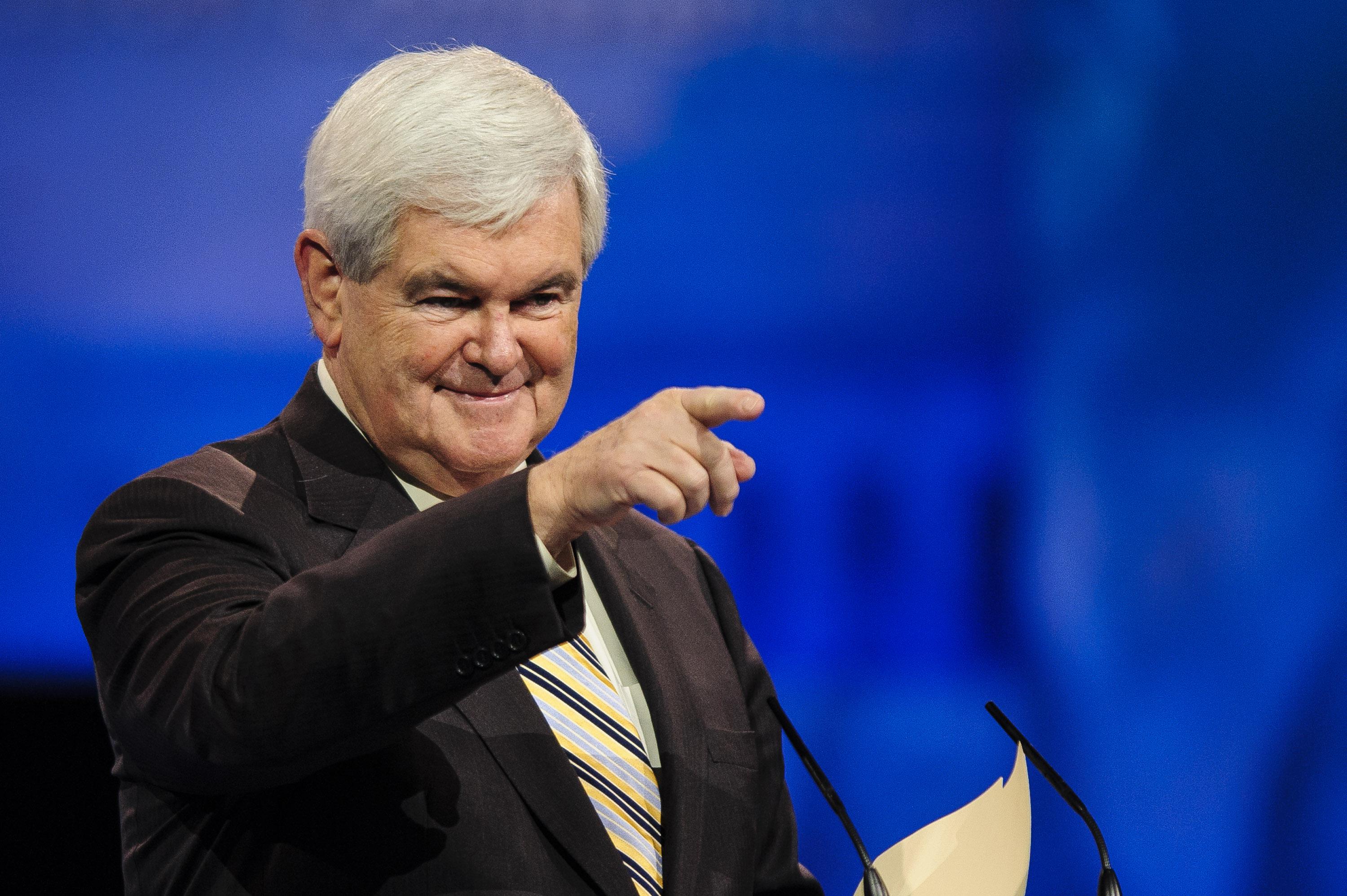Covering a presidential campaign can be a soul-deadening exercise. But it can be unpredictable. Anyone paying a little attention might predict which candidate will win a party’s nomination (Romney in 2012, obviously, from the get-go), but who thought Rick Santorum would rebuild his public image by camping out at Iowa Pizza Ranches? Who, in 2008, thought that Ron Paul would launch a national movement? Most media organizations were too busy embedding with sleepy Fred Thompson’s campaign to notice Paul.
I’m thinking of this in the wake CNN’s announcement that it will relaunch Crossfire, and Newt Gingrich will be one of the co-hosts. A cynic might say that the other co-hosts—S.E. Cupp, Van Jones, Stephanie Cutter—suggest that Gingrich has fallen to Earth. But c’mon, a struggling cable network is giving him its new tentpole politics show! That wouldn’t have happened without Gingrich’s 2012 bid.
With this in mind, here’s a ranking of the 2012 GOP candidates and how much good they did themselves by running for president.
11. Michele Bachmann. Before she launched her campaign, Bachmann was the resilient star of Tea Party politics. Once she affixed a “kick me” sign for national reporters and embeds, she imploded, and nearly lost re-election to her House seat (after running a bowing, scraping campaign focused on what she could do for the district, the opposite of her national campaign rhetoric.) She’s retiring next year instead of losing to a well-funded Democrat.
10. Thad McCotter. Actually, he fell even farther than Bachmann, but from a lower starting point. McCotter gave up a House seat he’d basically drawn for himself in order to blow a bunch of money on the Iowa straw poll, get fewer votes than people who didn’t show up, and bungle his re-election campaign by submitting too few signatures. He also squandered his reputation as a congressional wit by letting national TV viewers actually see and hear him.
9. Mitt Romney. Maybe the least-loved losing candidate of either major party since Michael Dukakis. There is no Mitt Romney legacy in the GOP—Paul Ryan was an iconic figure before Romney got to him and tarred him with the loser brush.
8. Rick Perry. No campaign has fallen apart as spectaculary as this one. Rudy Giuliani’s 2008 bid was always going to run up against the barricades of GOP social conservatism. Perry was a perfect-on-paper candidate who ran when it was too late, and after he had gone loopy from undisclosed experimental back surgery. He returned to govern a state that’s still booming, but he’s diminished as a national figure.
7. Gary Johnson. Had he run in 2008, Johnson’s social-focused libertarianism might have beaten out Ron Paul’s and defined that sector of the American right. Johnson’s delay meant he existed in Paul’s shadow, settling for a third-party campaign as a popular fringe figure.
6. Tim Pawlenty. Would the Financial Services Roundtable have hired him had his profile not been boosted by years of running for president? He’s benefited financially from the campaign like no other candidate.
5. Ron Paul. He did the most good for himself in 2008, but in 2012 Paul came within spitting distance of two caucus wins (Iowa, Maine) and his movement consolidated control of several state parties. Plus, he turned his Fed and gold stances into Republican orthodoxy.
4. Jon Huntsman. The press loves Republicans who Speak Truth to Power (i.e., tell Republicans that they should take positions that appeal more to the press), so the utter failure of Huntsman’s campaign did not stop him becoming a reasonably well-cited centrist pundit and No Labels … leader? Is that the word?
3. Herman Cain. By quitting the race as a sex scandal brought him down, by not fighting on, Cain retained most of the fandom he’d won in his primary debates. His “CainTV” empire isn’t impressing anybody, but his radio show is, in the words of still-consigliere Mark Block, “kicking ass.”
2. Newt Gingrich. See above.
1. Rick Santorum. I vividly remember the 2008 Values Voter Summit in D.C., when I ran into an incredibly bored-looking Santorum manning an exhibit hall booth. He was running an organization that offered to place Christian-specific V-chips in TVs, and trying to end conversations with teenagers who wouldn’t stop talking. Five years later, he’s enough of a national figure that reporters will quote his opinion when the Supreme Court rules or Congress kills a bill. He’s received, for the first time, sympathetic press coverage about his personal life (namely his disabled daughter, who has long outlived doctors’ pessimistic predictions). He’s doing OK, thanks to his awareness that being “the non-Mormon guy who didn’t have an affair” would be a great position in the stretch of a primary season dominated by Mitt Romney.
